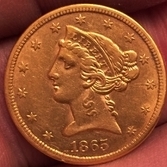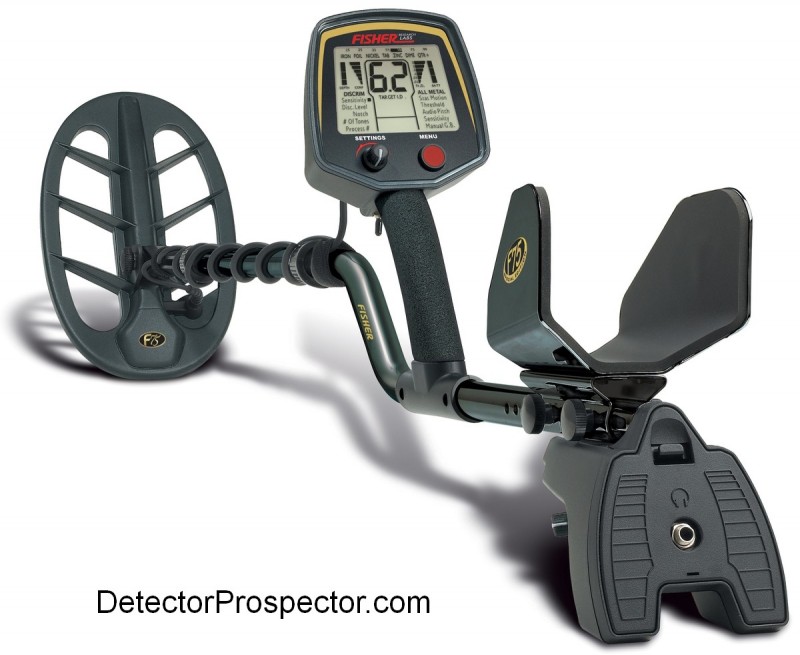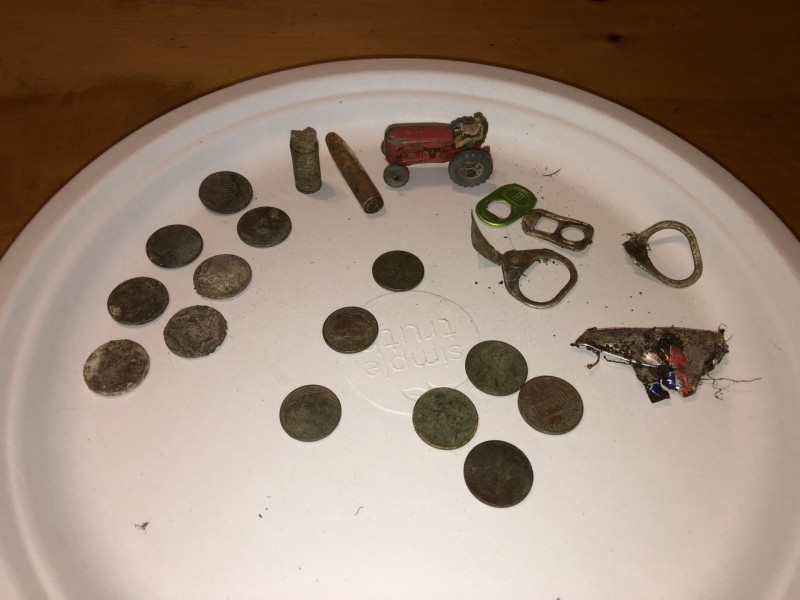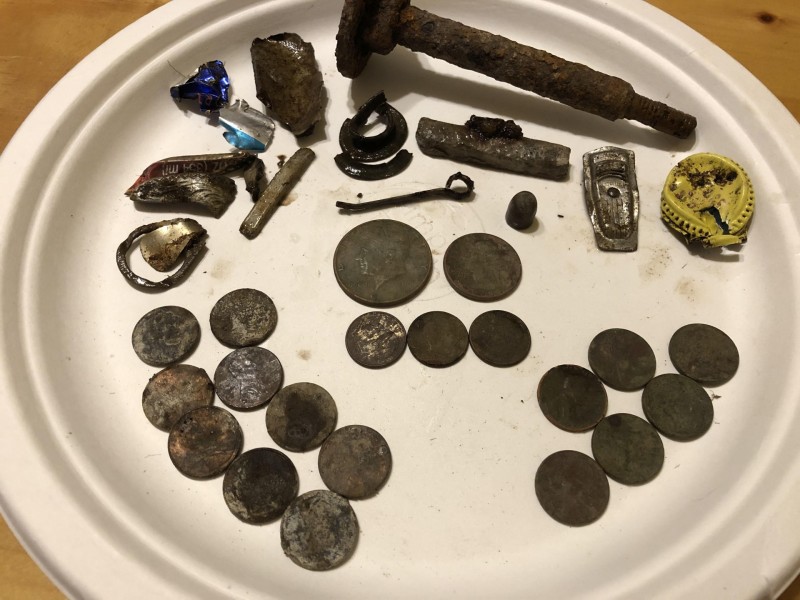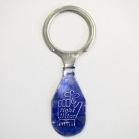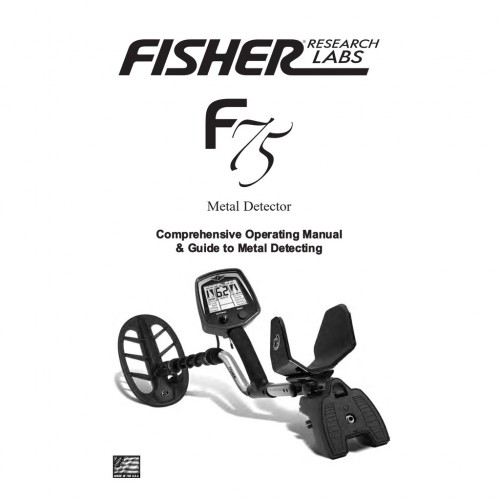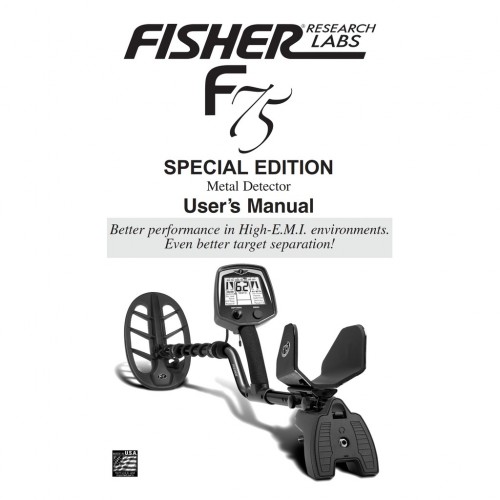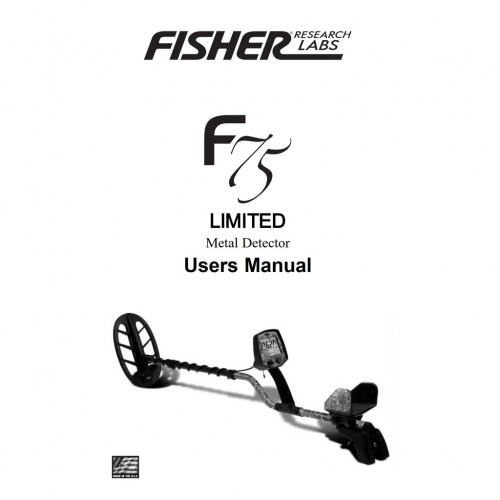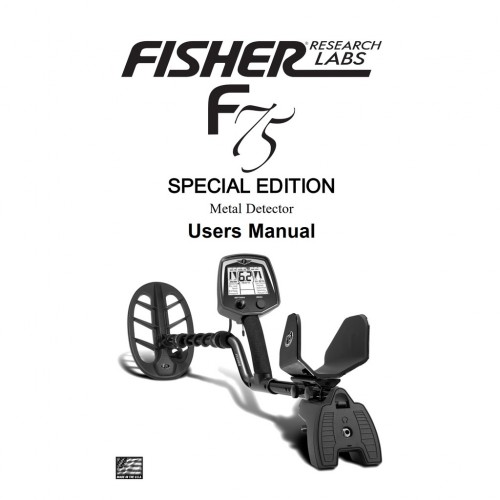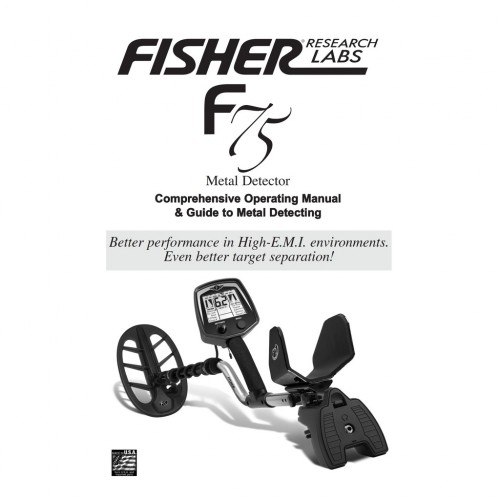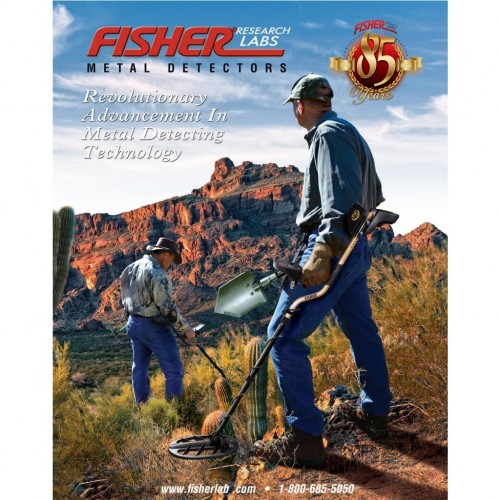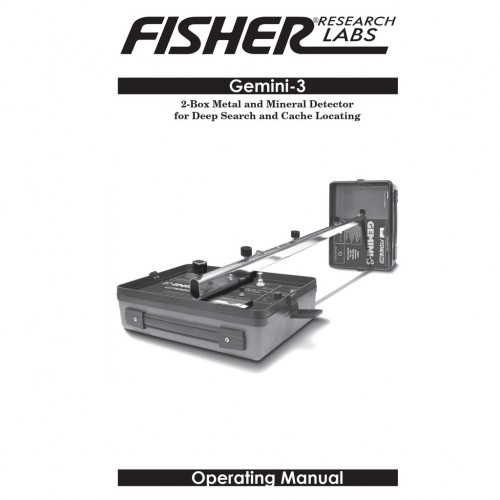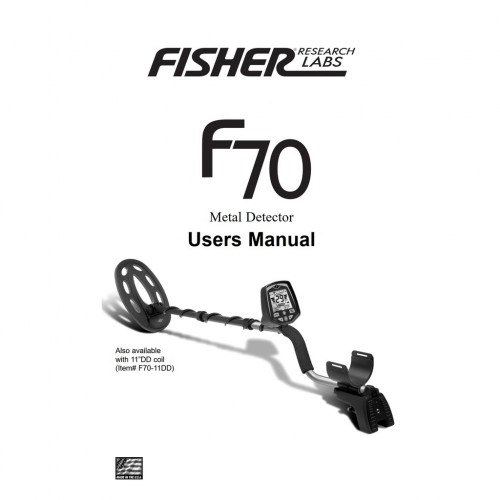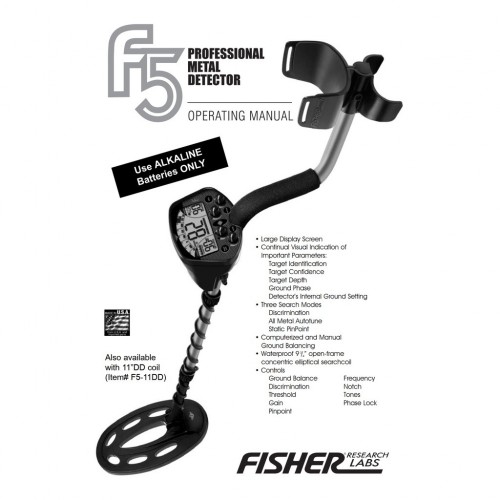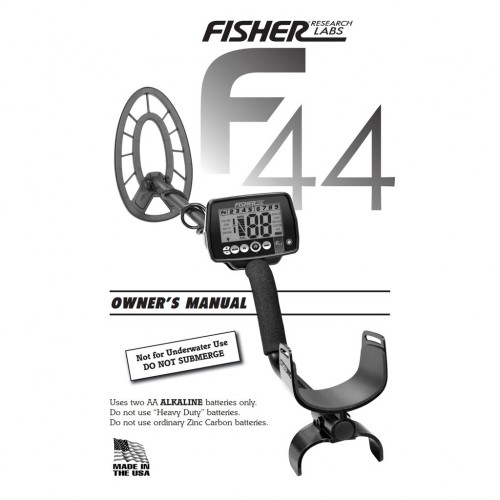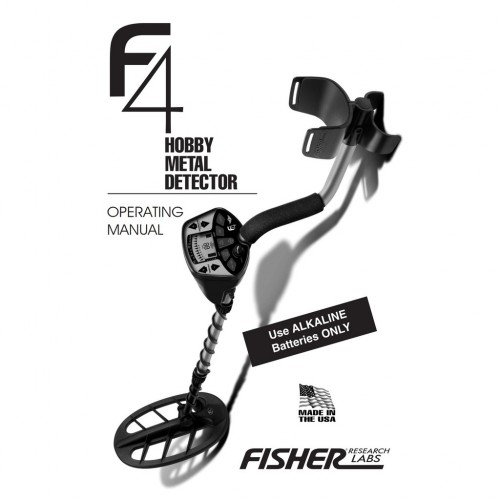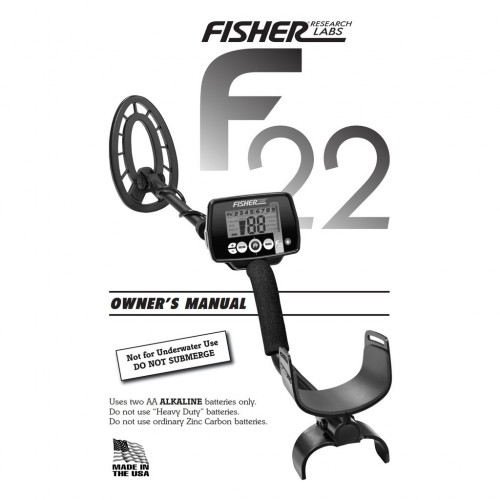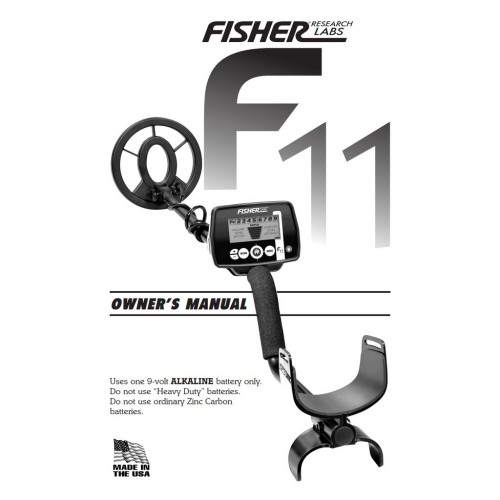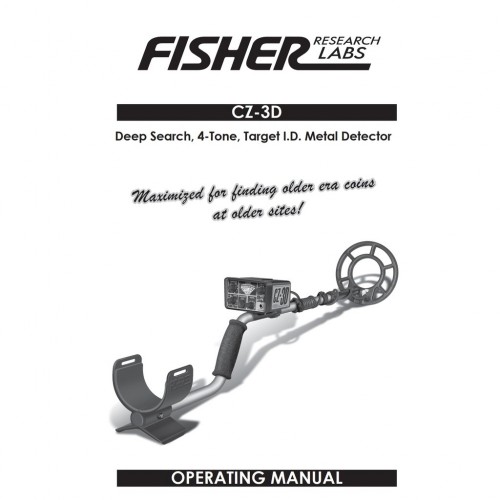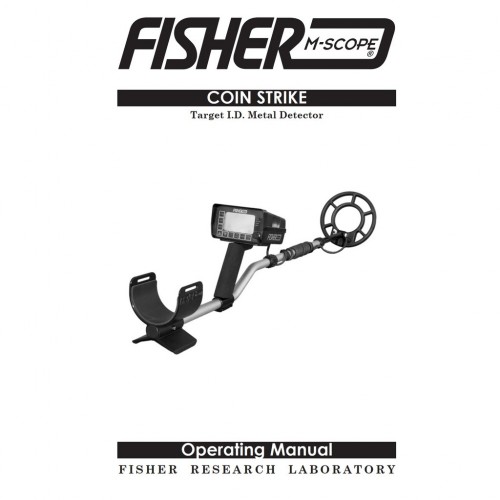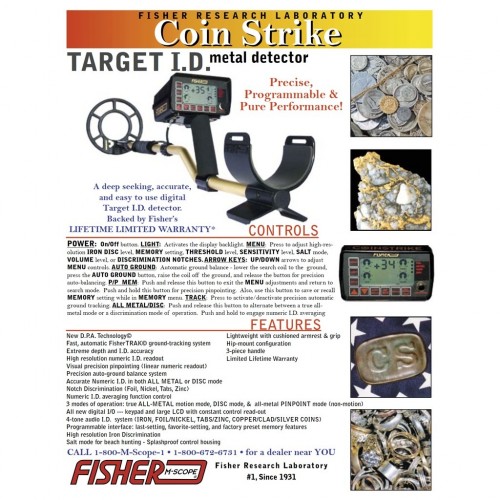Search the Community
Showing results for tags 'fisher detector'.
-
I think the F11-F44 was their futile attempt to go after the all terrain market that Garrett, and now Nokta Makro and Minelab have all entered and dominated. I have a feeling that, aside from the new coils, the F11-F44 wasn't so much of a new design as it was incorporating existing off the shelf designs from existing detectors to make a weatherproof detector. IMO they missed the mark, and I don't think these machines ever really took off. To be honest there just wasn't anything that stood out about this line. If you're the last one to enter a crowded market, you need to make something that stands out as different from your competition be it a far more competitive price, better features, or better performance, and I don't believe this line adhered to any of those factors.
-
This is less of a comparison and more of a question. It is a real head scratcher for me. I am not in any way trying to put down one detector and hype up another. This is just my experience. So, I recently had another try at the F75/T2/F70 platform. I have over 150 hours on these detectors and have now sold them all.......Why? My last go at this great group of detectors was with a 2016 F75LTD Special Edition with all of the latest features. After ten outings with it (about 40 hours) I have given up. Selling on Ebay right now with bids. My last work with it was at a city park that has such bad EMI that a Version 4 Omega 8000 and a T2+ were unusable there. This newer F75LTD had no audible issues with EMI at this park which for me anyway was a big improvement. My problem with it was determining a dig or not dig signal. At this park there is an audible signal every 2 or 3 inches, sometimes even closer. I did two field tests with the F75LTD 11"X7"DD and an Equinox 600 11" DD. Settings for the F75 were ground balance 87, Fe3O4 4 to 5 bars, DE mode, discrimination 15, 4 tones, sensitivity 80. Settings for the Nox 600 were ground balance 3, default Park 1 except for a bit of threshold tone set at 6 and sensitivity at 17 (even the Equinox can have EMI issues). I did use the horseshoe button a lot for iron ID. The first time I did this field test I did not want to believe the results. They were not pretty and were basically repeated in this second field test. So, I decided to try again. Both times I picked an area about 50 yards long and 2 yards wide, roughly a full sweep in one direction/lane and a return to the beginning in the adjacent lane. I marked the area off so I wouldn't stray or miss any ground. First I used the F75. Tons of signals, 1/4" aluminum shards are everywhere from shredded pop cans...... came up with 41 cents (3 clad dimes, 7 zinc pennies, 4 pre-1982 copper pennies) , a really cool HO scale tractor (I am a model train guy too, so great find, don't even have to weather it!) a shell casing and some pull tabs, etc. I did hit a really big target that sounded like big iron falsing by itself and did not dig it. There were so many iffy signals (at least to my ears and eyes with numbers and tones all over the place). I was only concentrating on two-way signals with generally consistent numbers and those are the targets I recovered. None were more than 6" deep. Next I covered the exact same ground with the Equinox. From the photos you can see that I or the F75LTD or a combination of both missed a lot of legitimate targets. It was easy to make the dig or no dig decision on these targets with the Nox 600. They were solid, two way, stable numbers and audio, no brainers. None were more than 8" deep and most were in the 2" to 4" range. The big iron screw had a clad dime that was 1" away from it and a little deeper than the top of the screw which was 3" below the surface. I heard the clad dime clearly both during sweeps and pinpointing, two separate obvious.targets. Lots of silver mercury dimes and wheat pennies in this area so I dug both targets. I only heard the iron with the F75. Also, there is no way using the Nox 600 that I would have missed the vast majority of the targets that I recoverd earlier with the F75. They were not difficult targets to recover. Also, except for the big iron screw and dime, I did not dig any targets with the Equinox 600 that were in previous F75 plugs or even adjacent to them, like within masking distance unless the F75 with the settings I was using can have masking issues with targets 4" apart........... So, I guess I am super spoiled by the Equinox.......or I seriously suck at the F75/T2 platform. Jeff These were recovered by the F75LTD These were recovered in the exact same ground afterwards by the Equinox 600. 1974 Kennedy half dollar, 1983 Washington quarter, 3 clad dimes 9 zinc pennies, 6 pre-1982 Memorial pennies, several pieces of lead and solid aluminum, etc.
-
People often forget about factory reset functions since it is still a rare feature. I am a proponent of resetting newer generation digital metal detectors on a regular basis, especially if settings get changed around a lot. The more setting changes are made, the more chance of a programming bug slipping in and messing with the operator. This is the procedure for the many F75 variants out there. From the F75 Owner's Manual page 10: RESET function The F75’s microprocessor saves all settings which you input, even after the power is turned off. If you wish to reset the settings to the factory preset, follow this process: Turn detector off. Press-and-hold the red MENU button and push-forward-and-hold the TOGGLE SWITCH. Turn the detector on, while you are still holding the controls. Release the MENU button and TOGGLE SWITCH. See the F symbol. When the F disappears, the detector is reset. Note: some latest F75 versions may show five pairs of number instead before displaying the F - the ten digit serial number. All settings have now been returned to factory defaults. Fisher F75 Metal Detector
-
Hi all, I'm new here. I really like this site with all the great advice. I read Steve's detector reviews. Excellent stuff... I'm new to metal detecting and would really like to get into it. I'm foremost interested in nugget hunting, but also general detecting in the parks and on the beach. After reading all the reviews here I'm thinking of getting a Fisher F75 LTD. I'm a fairly tech savvy person, and learn pretty quick. I'd rather spend more in the beginning and have a good machine to grow into. But I read some opinions that the F75 might be too much machine for a beginner. So I'm asking the experts here if I'm better off with a Fisher Gold Bug Pro or a Fisher F19. I would welcome some input. Thanks! Herb
-
I'm attaching the manual (downloaded from Fisher's site). (Edit: see Steve's link in his response below.) On page 9, bullet point 4. it says: Still holding the GEMINI-3 parallel to the ground, slowly turn the balance knob (with arrow) on the three-piece handle counterclockwise until you get silence (null) and zero meter reading. My question is this: is the knob actually doing an electronic adjustment (such as being attached to a variable resistor or capacitor) or is it just re-aligning / repositioning the transmitter/receiver/attachment rod to optimal location?
-
Also called RF detectors and depth multipliers. Invented in the 1930's by Gerhard Fisher (founder of Fisher Research Labs, now part of the First Texas conglomerate), this type of detector seems to not have changed much in operating characteristics in 80+ years. From what I've found there are still three competing models in production: Fisher's current Gemini-3 model (now 30 years old) https://www.detectorprospector.com/metal-detector-database/fisher-gemini-3-r27/, Garrett's Treasure Hound Eagle Eye Depth Multiplier (quite a mouthful) which is an add-on to their aging GTI 2500 standard style metal detector https://www.detectorprospector.com/metal-detector-database/garrett-gti-2500-r44/ and White's TM808 https://www.detectorprospector.com/metal-detector-database/whites-tm-808-r38/ , a spinoff of a collaboration between White's and Discovery, another Sweet Home, OR company that appears to now be defunct. The Fisher unit, operating at 82 kHz, seems to be the most closely aligned survivor of the early design. Garrett's 'latest' depth multiplier (easily the most expensive at $1300 retail when combined with the GTI 2500) with its 7.2 kHz operating frequency advertises its advantage of being in the VLF range, ignoring ground minerals. White's unit (operating frequency = ?) has ground cancelling controls. Unlike today's deep PI's and ZVT which can also go deep, these 2 box transmit/receive (T/R) detectors ignore small objects -- an advantage when the sought after target is large and in a trashy area. That's a brief overview of the current commercial climate, but what I'd like to know is how much different these three units are when it comes to operating characteristics. Specifically do the differences in operating frequency and/or ground adjustments translate into better performance under certain conditions?
-
Is a fisher M97 a good metal detector? One was just given to me. I am wanting to get into metal detecting with my grandson.
-
-
Version 110614 Rev 5
102 downloads
Fisher F75 Special Edition DST | F75+ User's Manual, 5.06 MB pdf file, 48 pages Note there is some confusion regarding the Special Edition (Black) as generally being referred to as Limited or Ltd models in most advertising since the Special Edition is just a color version of the Limited. The Fisher F75+ is also another version of this same detector, sold with different accessories. Fisher F75 Ltd (Special Edition) Data & Reviews Fisher F75+ Data & Reviews Fisher F75 - Steve's Review First Texas (Fisher) ForumFisher F75 - Steve's Review -
-
-
-
-
-
-
-
-
-
-
-
-
-

